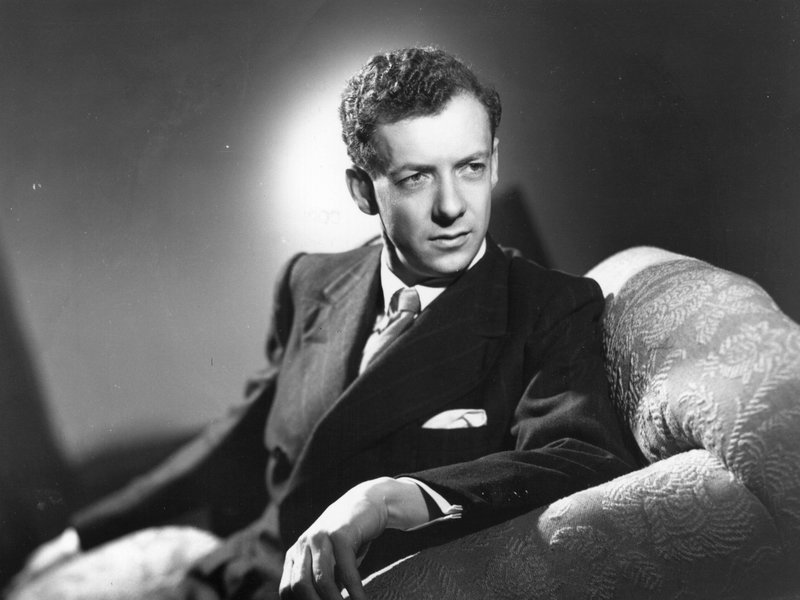Emmanuel Music opens Britten Festival with compelling rarities
Performances of Benjamin Britten’s music seem like special occasions in Boston. Yet revivals of the British composer’s more familiar repertoire can cast a shadow over Britten’s smaller works.
Fortunately, Emmanuel Music has put together the Britten Chamber Festival, a three-day concert event that showcases the composer’s lesser-known (and some well-known) song cycles and chamber music. Friday night at the church’s Parish Hall, some of the best musicians in Boston revealed why Britten’s music still remains relevant five years after the composer’s centennial.
Highlighting the festival are Britten’s three string quartets, and one is being offered on each concert. The String Quartet No. 1, heard Friday night, dates from 1941, a year Britten and his partner and collaborator Peter Pears spent in the United States. Though cast in a taut, classical structure, its outer movements— both agitated and vigorous —bear the imprint of Bartók.
In Friday’s performance, an ensemble comprising violinists Heidi Braun-Hill and Sarah Atwood, violist Noriko Futagami, and cellist Guy Fishman, dug into the angular sonorities that make up the central section of the first movement with fury. The sly and percussive melodies of the finale were shot through with an edge-of-seat tension. In the brief second movement, Britten reveals a Shostakovichian sarcasm through simple, chugging figures. There and in the third movement, where a chromatic melody hangs like a cloud over shimmering harmonies, the musicians found the music’s sardonic wit.
Britten’s songs have direct emotional appeal, and Friday’s concert featured two little-heard cycles.
Tit for Tat, a setting of Walter De la Mare poems for baritone and piano, captures fleeting boyhood memories. Singing with smooth, yet smoky tone, baritone David Tinervia delivered “A Song of Enchantment” with folk-like charm. His gentle melodies in “Autumn” captured the poem’s beautiful imagery, and the contemplative lines of “Silver” softened to moments of hushed intensity in the later verses. Tinervia’s voice in “Tit for Tat,” where the narrator longs to string up a hunter for his senseless killing of animals, swelled in statements of resentful passion. In each song, pianist Judith Gordon played gracefully, sprinkling each song with slight dissonances.
In A Charm of Lullabies, performed by Gordon and mezzo-soprano Carrie Cheron, a mother revels in and even wrestles with her emotions while rocking her baby to sleep. Cheron’s singing of “A Cradle Song” glowed with inviting warmth. Sharply phrased, her strathspey rhythms bounded urgently in “The Highland Balou,” with Gordon’s droning chords setting a bucolic scene. In “Charm,” the singer aptly conveyed a mother’s irritation when her child will not fall asleep. Tension was released in the ensuing “Nurse’s Song,” which found Cheron in a brief musical moment of repose. In each, Gordon’s accompaniment painted a pleasant picture of motherhood. Her touch at the keyboard was firm but never overstated.
In Britten’s Three Character Pieces for Piano, Gordon made the most of the composer’s wide shifts of mood and adventurous melodic and harmonic writing. In the first of the set, she unwound the tight coils of melody into running passages. The elegant phrases of the second took on Mozartean simplicity, and the bracing runs and clamorous chords that pepper the final movement were tossed off with verve.
Britten was a life-long advocate for the music of Henry Purcell. Both composers enjoyed careers writing opera, and though separated by two and a half centuries, the two shared a special talent for setting the subtleties of the English language.
In Purcell’s No, Resistance is but Vain, which Britten arranged for two voices and piano, the singers plead with each other over the dangers of mutual attraction. In Friday’s performance, Cheron and Tinervia spun each line with the intensity of emotionally charged conversation. Purcell’s melodies surged and retreated, and Gordon’s accompaniment flowed with appropriate stylistic flair.
The Britten Chamber Festival will continue with String Quartet No. 2 and The Holy Sonnets of John Donne 3 p.m. Saturday at Emmanuel Church’s Parish Hall. At 3 p.m. Sunday, the program will offer the String Quartet No. 3 and Winter Words. emmanuelmusic.org
Posted in Performances





